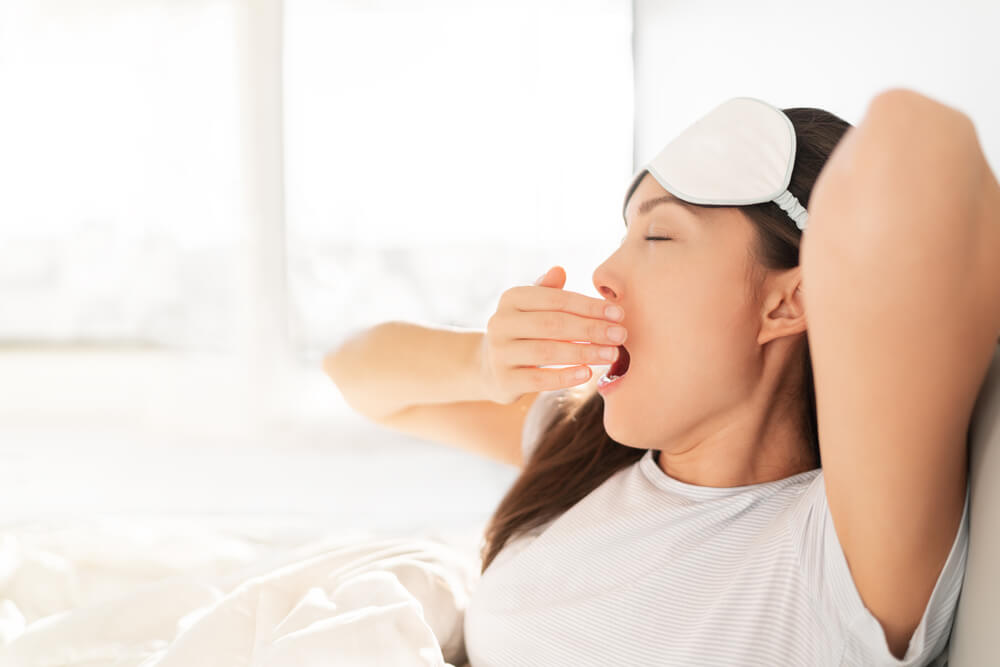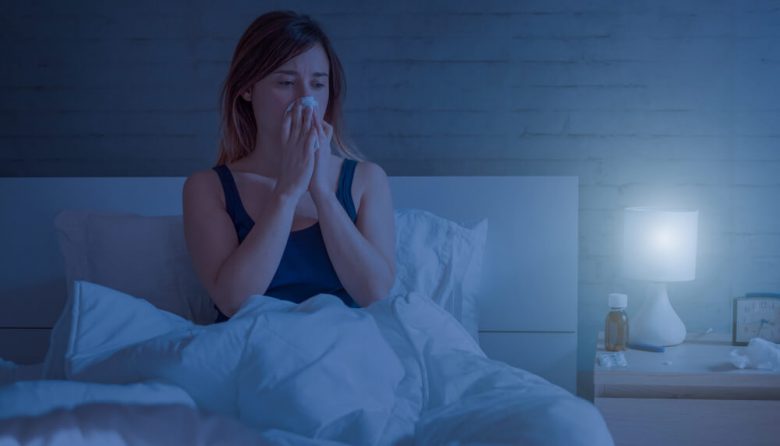Alas, allergies don’t go away when you wrap yourself in a blanket at night (as if your daytime symptoms weren’t enough). They are still there, and they may even worsen. Allergies and sleep deprivation are two sides of the same coin, so you now have a plausible excuse for waking up groggy.
But it doesn’t help, does it? Read on to discover what you can do to sneeze less and get more sleep.
Why do my allergies get worse at night?
Pollen counts may be high even in the evenings during an allergy season. If drains get into your home, they may disrupt your sleep with sneezing, coughing, tossing, and turning.
You may also be allergic to other particles that your bedroom is rife with. Mold and dust mites aggravate nighttime allergies, making it harder for you to breathe through your nose and stay asleep. Like pollen, they put your body in the defense mode to produce a large amount of mucus. Clearly, congestion has nothing to do with a good night’s sleep.
How to sleep better with allergies?

All allergy sufferers can sleep better by minimizing their exposure to allergens at night. How? These six tips will help you make your bedroom into a sleep sanctuary if you have hay fever:
- Get a quick rinse when you get home. Pollen drains cling to your body and clothes. By taking a shower, you can prevent them from getting into your bed.
- Keep stuffed toys out of your bedroom. These are dust magnets that may make your nighttime allergies worse. Store them elsewhere.
- Buy hypoallergenic covers for your bed. There are many covers for pillows, duvets, and mattresses that don’t capture dust. Invest in some to breathe well at night.
- Shut your windows. Resist the temptation to let fresh air in during an allergy season. You can do worse by letting pollen inundate your bedroom.
- Invest in a HEPA filter air purifier. It’s the best choice to make sure you inhale allergen-free air. You can place an air purifier near your bed to trap airborne particles as you sleep.
- Don’t let your puppy or kitty sleep with you. Pet dander is one of the major culprits of bad allergies at night. Saying “No” to your furry friend can be heartbreaking, but this will improve your sleep.
If none of these sleep tips for allergies work for you, try more potent antihistamines and decongestants. Your doctor will help you choose them.

